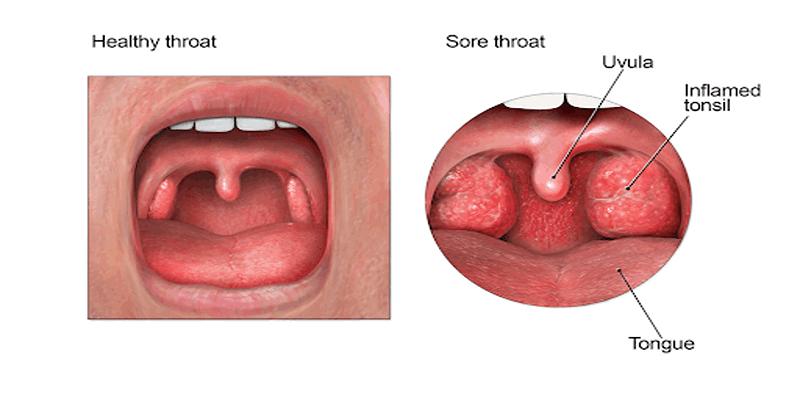Is Schizophrenia Preventable? An In-Depth Look at Early Intervention and Protective Measures
Sep 05, 2024 By Noa Ensign
Schizophrenia is a complex mental health disorder that has puzzled researchers and clinicians for decades. Affecting around 1% of the population, it is characterized by a range of symptoms, including delusions, hallucinations, disorganized thinking, and emotional flatness. While the condition is treatable, it remains one of the most challenging mental health issues, significantly impacting an individuals life and the lives of those around them.
With the ongoing advances in medical science, a key question has emerged: can schizophrenia be prevented? In this article, well explore the factors contributing to schizophrenia, discuss whether prevention is possible, and review the most current strategies to reduce the risk of developing this condition.
Understanding Schizophrenia and Its Onset
Schizophrenia typically manifests in late adolescence or early adulthood, though early warning signs can often appear in childhood or the teenage years. It is a highly variable condition, meaning that its symptoms, severity, and progression differ widely from person to person. What makes schizophrenia particularly challenging is its multifactorial nature. A combination of genetic, biological, and environmental factors contributes to the likelihood of developing the condition.
The Role of Genetics and the Environment

Genetics plays a significant role in schizophrenia. Studies have shown that individuals with a family history of the disorder are at a much higher risk. However, genetics alone don't paint the whole picture. Environmental factors also play a crucial role, interacting with genetic vulnerabilities to trigger the onset of schizophrenia.
Early Warning Signs and the Importance of Early Detection
Early signs of schizophrenia are often subtle and can be easily mistaken for typical adolescent behavior. However, if recognized and addressed early, it may be possible to mitigate the impact or delay the full onset of the disorder. Early warning signs can include:
- Withdrawal from social interactions
- A noticeable drop in academic or job performance
- Difficulty concentrating or thinking clearly
- Heightened suspicion or paranoia
- Emotional flatness or a lack of expressiveness
Early intervention strategies focus on recognizing these symptoms and implementing therapeutic measures to reduce stress, improve social functioning, and provide cognitive support. This approach is crucial because the earlier the condition is addressed, the better the outcomes tend to be for individuals at risk.
Can Schizophrenia Be Prevented?
Preventing schizophrenia outright is currently not possible due to its complex and multifactorial nature. However, research has shown that reducing risk factors and intervening early can significantly lower the chances of a full-blown psychotic episode or delay its onset. Here are some key areas where prevention efforts are being focused:
Reducing Risk Factors
Given the significant role of environmental factors in schizophrenia, addressing these can reduce the risk for those who are genetically predisposed. These risk reduction strategies include:
Addressing Childhood Trauma: Children exposed to abuse, neglect, or severe stress are at an elevated risk. Providing supportive environments, early counseling, and trauma-informed care can mitigate these risks.
Avoiding Substance Abuse: Substance abuse, particularly during adolescence, has been strongly linked to the development of schizophrenia. Education and awareness programs targeting youth can help reduce the likelihood of drug use that may trigger psychotic symptoms.
The Role of Early Intervention Programs
In recent years, early intervention has become a focal point in schizophrenia research and treatment. Early intervention programs are designed to identify at-risk individualsespecially those showing early warning signsand offer them targeted support. These programs typically involve:
Psychological support and therapy: Cognitive-behavioral therapy (CBT) and family therapy can be beneficial in helping individuals manage stress and develop coping mechanisms.
Psychoeducation: Educating individuals and their families about schizophrenia helps in recognizing symptoms early and reduces the stigma associated with seeking help.
Medical interventions: For some at-risk individuals, low-dose antipsychotic medication may be recommended as a preventive measure. However, this is a controversial approach, as the long-term effects of such medication in those without a confirmed diagnosis are still debated.
Protective Factors and Building Resilience
Prevention is not just about reducing risks; its also about enhancing protective factors. Protective factors are conditions or behaviors that decrease the likelihood of developing schizophrenia, even in those with a high genetic risk. These factors include:
Strong social connections: Positive relationships and supportive family environments can act as a buffer against the stressors that contribute to schizophrenia.

Healthy lifestyle choices: Regular exercise, a balanced diet, and good sleep hygiene are all associated with improved mental health outcomes and may reduce the impact of stress on those at risk.
Stress management skills: It can be beneficial to develop coping strategies to manage stress, such as mindfulness, relaxation techniques, and time management.
Current Research and Future Directions
The ongoing research into schizophrenia prevention is focused on understanding the underlying mechanisms that trigger the disorder. Scientists are exploring various genetic, biological, and psychological pathways to better identify who is at risk and when intervention should occur.
Biomarkers and Predictive Tools
One promising area of research is the identification of biomarkersbiological indicators that could predict the onset of schizophrenia before symptoms appear. If reliable biomarkers can be identified, they could revolutionize the way schizophrenia is detected and managed, allowing for more targeted and timely interventions.
Advances in Neuroimaging
Neuroimaging studies are also providing valuable insights into how brain structure and function change in those at risk for schizophrenia. By understanding these changes, it may become possible to design interventions that could prevent the disorder from progressing.
Genetic Counseling and Personalized Approaches
With advances in genetics, there is potential for personalized prevention strategies based on an individuals genetic profile. Genetic counseling may become a tool for those with a family history of schizophrenia, offering tailored advice on lifestyle changes and early warning signs to monitor.
Conclusion
While schizophrenia cannot be entirely prevented, significant strides have been made in understanding how to reduce its impact and delay its onset. Early detection, addressing environmental risk factors, and fostering protective factors can all contribute to better outcomes for those at risk.
The current focus on early intervention programs and research into predictive tools offers hope that in the future, the burden of schizophrenia can be greatly reduced. Individuals, families, and communities need to stay informed, seek help when early signs emerge, and adopt healthy practices that promote overall mental well-being.

6 easy bowl recipes for a wholesome and nutritious dinner

How Common Is Parkinson’s Disease In Families?

Gym Makeup: Discover the Impact on Your Skin and What to Avoid

Most Common Causes Of Lower Abdominal Pain

What is Strep Throat

Vitamin K - A Key Player in Health


